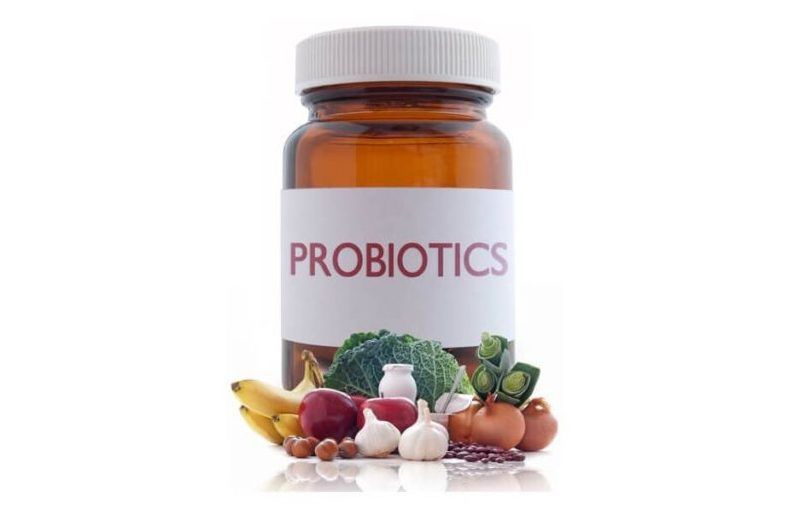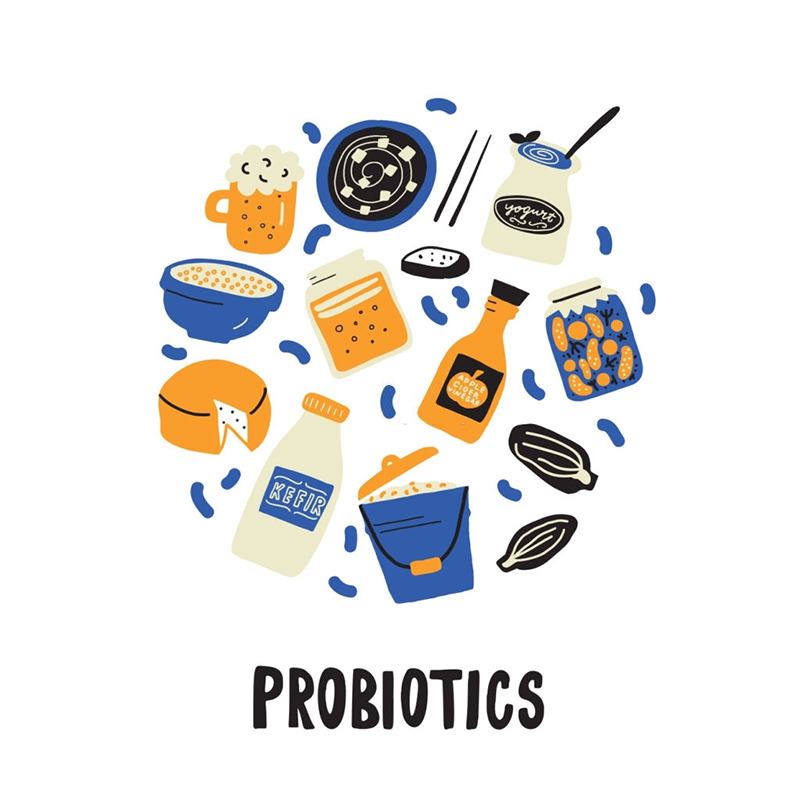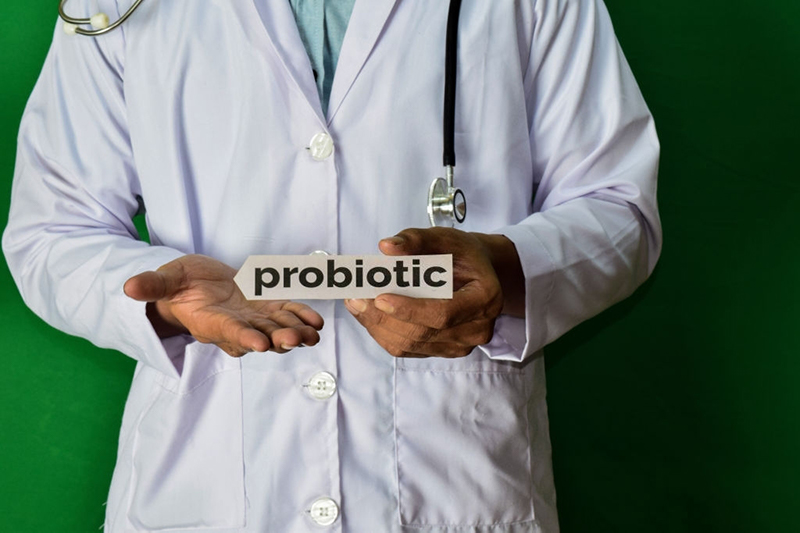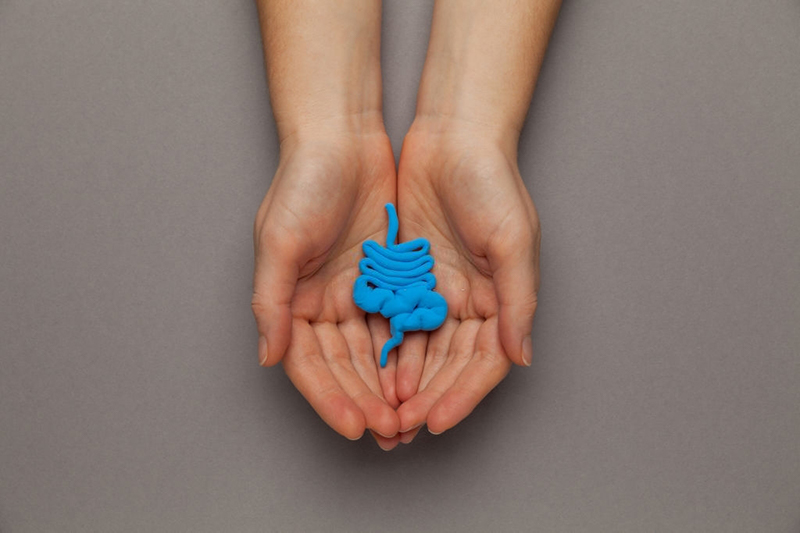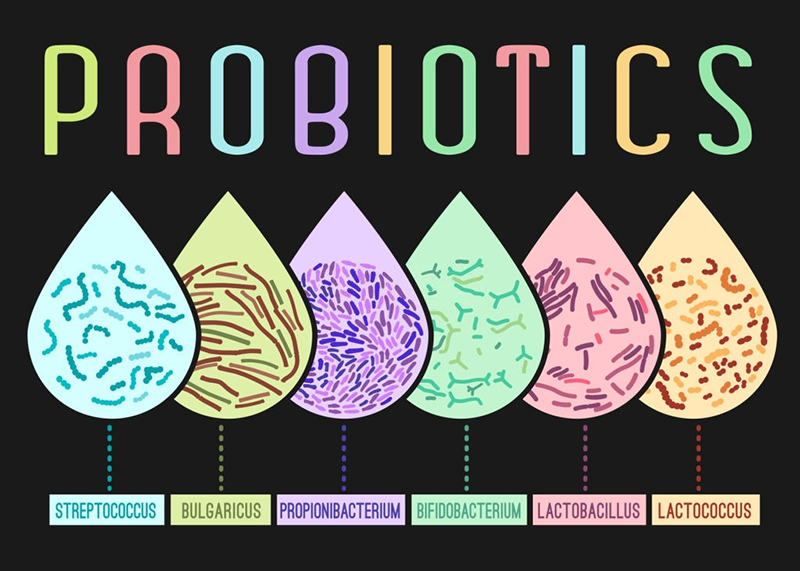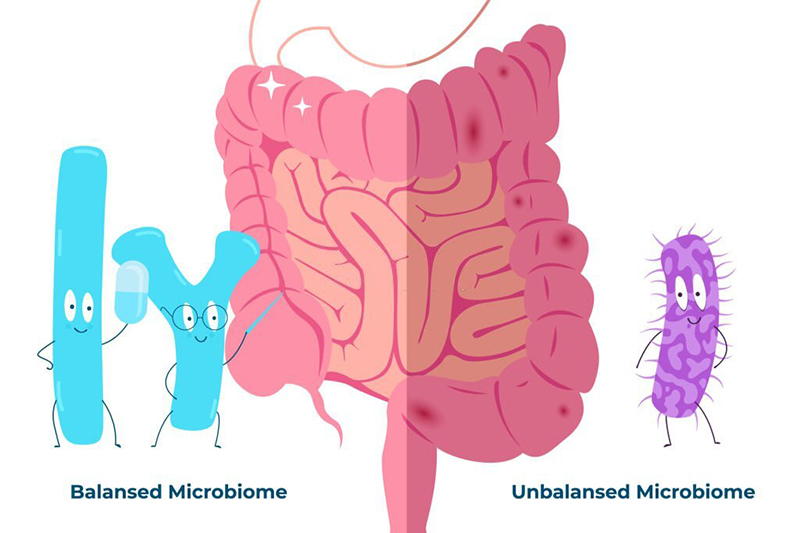Probiotics, mainly referring to intestinal probiotics, are the general term for the original beneficial bacteria in the intestines. Adding beneficial foreign bacteria to the human body directly increases the number of one or several probiotics in the intestinal tract, thereby regulating the balance of intestinal flora, thereby exerting the functions of body regulation, collective defense, disease prevention, and disease treatment. Common probiotic drugs include Bacillus licheniformis granules, Bifidobacterium viable bacteria powder, Clostridium butyricum dual viable bacteria powder, etc. probioticseverything.com
what probiotics are good for you
what probiotics are good for you
Commonly used probiotics are:
1. Lactobacillus: Lactobacillus helveticus, Lactobacillus acidophilus, Lactobacillus brevis, Lactobacillus casei, Lactobacillus johnsonii, Lactobacillus rhamnosus, etc.
2. Bifidobacterium genus: Bifidobacterium, Reiter B, Dragon root, Bifidobacterium breve, etc.
3. Streptococcus: Streptococcus thermophilus, Streptococcus faecalis, Lactococcus, Streptococcus intermedia, etc.
4. Yeast, etc. probioticseverything.com
what probiotics are good for you
what probiotics are good for you
Probiotics inhibit the proliferation of harmful bacteria by competing with harmful bacteria for oxygen, nutrition and colonization sites, thereby changing the balance of intestinal flora and purifying the intestinal environment. Through antioxidant, anti-mutation, physiological activity, immune stimulation, etc., it exerts the functions of body regulation, body defense, disease prevention, and disease treatment to the host. probioticseverything.com
what probiotics are good for you
what probiotics are good for you
Here are some examples of indications for probiotics.
1. Bacillus licheniformis viable bacteria: used for acute and chronic enteritis and diarrhea caused by bacteria or fungi. It can also be used for the prevention and treatment of intestinal flora imbalance caused by other reasons.
2. Bifidobacterium live bacteria powder: used for intestinal dysfunction caused by intestinal flora imbalance, such as acute and chronic diarrhea, constipation, etc.
3. Clostridium butyricum dual viable bacteria powder: used for acute and chronic diarrhea caused by acute non-specific infection, intestinal flora imbalance caused by various reasons such as antibiotics and chronic liver disease, and related acute and chronic diarrhea and indigestion.
4. Bacillus subtilis dual live bacteria: used for diarrhea, constipation, flatulence, indigestion, etc. caused by intestinal flora imbalance. probioticseverything.com
what probiotics are good for you
what probiotics are good for you
Precautions
1. When preparing milk powder or preparations containing probiotics, pay attention to use warm boiled water (35-40°C) for the baby. The brewed milk or probiotic preparations should be taken in time to avoid the death and failure of probiotics.
2. Probiotics cannot be taken with antibiotics. Antibiotics, especially broad-spectrum antibiotics, cannot identify harmful bacteria and beneficial bacteria, so when it kills the enemy, it often kills the beneficial bacteria as well. At this time or after adding some probiotics, it will play a good role in maintaining the balance of intestinal flora. If antibiotics must be taken, the interval between taking probiotics and antibiotics should not be shorter than 2-3 hours.
3. Babies over 1 year old can drink probiotic yogurt. Especially for babies with loss of appetite, constipation, frequent diarrhea or indigestion, long-term choice of probiotic yogurt can also regulate gastrointestinal function. After drinking yogurt, if you experience abdominal discomfort or abdominal pain, nausea, or vomiting, you should stop drinking it immediately.
4. Probiotic foods include fiber, lactose, starch, oligosaccharides, fermented products of probiotics and other ingredients; so while supplementing probiotics, you should eat more root vegetables, fruits and seaweeds, which is equivalent to the intestines. Set up an environment in which they like to grow. Most probiotics don’t like meat and glucose. Too much sugar in probiotic-containing foods can also reduce the activity of the bacteria.
5. If there is no indigestion, bloating, diarrhea or other factors that disrupt the balance of intestinal flora, it is not recommended for infants and young children to consume too much probiotics. probioticseverything.com
what probiotics are good for you
what probiotics are good for you
Related Posts


